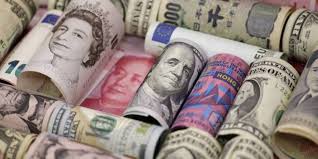The Central Bank of Nigeria (CBN) has officially tightened the noose on milk and food importation with the directive to banks to stop the processing of milk and its related products on “Bills for Collection basis,” which allowed the importer to buy on credit.
In a circular addressed to DMBs, the apex bank also announced that henceforth, the mode of payment with regard to the importation of milk and its related products must be on the basis of Letters of Credit (LC) only.
The letter dated 26th August 2019 and titled ‘LETTERS OF CREDIT AS MODE OF PAYMENT FOR THE IMPORTATION OF MILK AND ITS RELATED PRODUCTS’ read:
“As part of efforts aimed at streamlining payment modes for imports, the Central Bank of Nigeria (CBN) has directed all Authorised Dealers to discontinue the processing of imports of milk and its related products on Bills for Collection basis.
“For the avoidance of doubt, the mode of payment in respect of milk and its related products shall henceforth be on the basis of Letters of Credit (LC) only.
According to the Governor of the CBN, Godwin Emefiele, Nigeria spends between $1.2 billion to $1.5 billion annually on importation of milk and other dairy products. The CBN governor noted that although there were some successful attempts at producing milk locally, the vast majority of the importers still treat this national aspiration with imperial contempt.
Following the new policies, milk and all food import may now officially be ineligible for FOREX, and importers will no longer have access to the Investors & Exporters Window (I&E) for foreign currencies required to carry out transactions.
The new CBN directive to banks means the apex bank has officially tightened the noose on milk importation. Milk importers should, therefore, brace up to prepare sourcing their own FOREX by patronising bureau de change or other sources.
As early stated, this will come at a higher cost and the implication is that consumers will be made to bear the brunt of the extra costs incurred by the investors.


 Entertainment6 days ago
Entertainment6 days ago
 Health1 week ago
Health1 week ago
 Health4 days ago
Health4 days ago
 Football1 week ago
Football1 week ago
 Football1 week ago
Football1 week ago
 Crime5 days ago
Crime5 days ago
 Education6 days ago
Education6 days ago
 Health6 days ago
Health6 days ago












